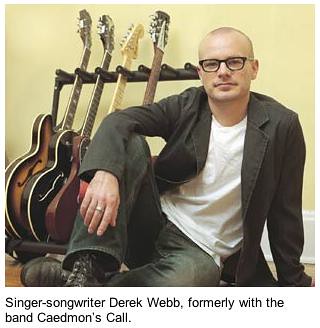.
Originally published May22,2k6 on refWrite page 3.
.
.
Michael Geist is Professor of Internet and E-Commerce Law, University of Ottawa. He presented the 2006 Hart House Lecture at the University of Toronto (Mar30,2k6). It was posted to the Internet as a special feature at P2P.Net (see Sidebar) on May13,2k6. Dr Geist's title: Our Own Creative Land: Cultural Monopoly and the Trouble With Copyright. In entitling his address on the problem - or as he says, "the Trouble" - with copyr+t, the law professor brings into focus copyr+t's relation, certainly nowadays, to cultural monopoly. Copyr+t has always been troublesome, and in the USA it has increasingly become so. In Canada, a certain balance had been achieved which retained some of its postive implications for the future, as society moved from print technics for mass-reproduced copies and copyr+ts, to the newer reproduction technics and distribution factors of digital computing.
TechNotes, by Owlie Scowlie
Geist makes a play on a phrase in the English-version of the Candian national anthem - to wit, "our home and native land" - which grists his title-opener, "Our Own Creative Land." Its use betrays a streak of Canadian nationalism, but only, I think, to an appropriate degree. It reveals, perhaps boasts, that on this matter Canada has not so far followed the way of USA copyr+t law, as virtually dictated by behemoth cultural industries in "the home of the free and the land of the brave" - on this matter, not so free, nor the lawmakers so brave as to stand up to the giants' self-serving interests in a certain kind of hastily emerging copyr+it legal structure, especially in regard to noncommercial file-sharing of movies and music recordings.
A good part of the good Professor's speech at the University of Toronto's student center, Hart House, devotes itself to the specificities of a Liberal Party lackey in the House of Commons who made herself busy in the service of the h+ powered interests who want to keep low-end users and ordinary consumers from being permitted to register their interests in a truly civic discussion of copyr+t.
[Member of Parliament Sarmite "Sam"] Bulte was closely aligned with cultural issues throughout her term in office, including chairing the Standing Committee [of the House of Commons,] on Canadian Heritage in 2004. That committee produced a report that came to be known as the Bulte Report which included a lengthy list of copyright reform proposals that attracted the ire of both the user and education communities, while eliciting much praise from the copyright lobby and copyright collectives. The government responded to the Bulte Report in March 2005 by outlining its plans for digital copyright reform. Those plans were ultimately incorporated several months later into Bill C-60, the first major piece of copyright reform introduced in Canada in eight years.
Fortunately, the legislation withered away with the fall of the Lib govt, and Sam lost her seat in the January 2006 election. It turned out, during the campaign, that Sam was blatantly soliciting and was being royally rewarded in fund-raisers to be returned to office, hopefully to shepherd her legislation on copyr+t thru a Commons vote on behalf of her well-heeled cronies with their special interests, while the low-end users of copiable materials and main consumers of freer parameters for noncommercial copying (including teachers) were being systematically shutout of the process.
The furore against Sam rose on its own wings, with a little help from Geist. Sam was defeated. For other reasons, the Libs were booted from govt. The Conservs took office, and a new set of interests came into play. Geist tells us that his posts to the Internet fueled this turn of events. And more.
Moreover, my postings were not limited to Ms. Bulte. In fact, the funding history of Bev Oda, the Conservative Canadian Heritage critic [in opposition to the Lib govt], who would later be named Minister of Canadian Heritage, was also discussed given the significant support she received from the broadcasting community.
Now, I doubt that here the prof is referring to the state broadcasters like the CBC, Radio Canada (French), and TVO (Ontario, English and French). He's probably referring to the corporate TV networks in Canada like Global and CTV, and independent stations, plus the cable carriers. But he sticks to Oda, who is herself
a CBC veteran, without presenting any evidence that she has or will author legislation contrary to low-end users and consumers of the retail products the broadcasting independents have to offer; altho I suspect she may take a whack at the privileged position of state broadcasters and the monooploy of liberal leftwing viewpoint for which
CBC sets the crossw-country tone, the hegemonic tone even on the independent networks - Kevin Newman of
Global Network being the most glaring example of me-tooism in following the state-broadcaster's party line (the owning family is a Lib, and it shows).
So, I suspect that Geist is trimming his critique here, but Oda too needs someone to dwell on her case. Let her and Geist slug it out, one pro-corporate (maybe), the other pro-state (maybe) - since Geist is silent on the state as primary broadcaster and opinion-maker in Canada. That's what Oda has to face. Again, can the low-end user and the ordinary consumer of radio and TV broadcasting and of cable TV, can we effectively get in on the discussion in regard to the overly -restrictive copyr+t laws that the various govts, left or r+t, probably have in store for us?
We could go from there to the telephone system, where Bell has a monopoly except for the rising competition from maverick mobiles and over-the-Internet-phone companies (that topic would take Geist's topic deep into the territory of another telcom issue called "Network Neutrality," in the name of which critics of Internet regulation often don't bother to unravel the complexity of consequences of what they advocate; so we must avoid here anything beyond this mere mention).
After the learnèd prof's intro around Bulte and Oda, he gets into the meat of his presentation, specifying four significant topics:
1.) Blogs as a premier instance of technics where low-end users and ordinary consumers have already proven capable of shining - and disseminating info without concern for copying when it takes place on a noncommercial and properly attributed basis. Bloggissimo (May13,2k6) carries Geist's Blog section as a quote, and is planning a detailed discussion of it (soon, I'm told) in G's larger context of thawt
2.) Creative content - Geist cites GarageBand, an Apple new-music distribution site, mostly free it seems. Then Geist mentions glowlingly MySpace, a hosting site/newtwork where young musicians have sometimes launched themselves into fame and contracts with big music-recording companies, on the basis of the freebies they offered for download to music-starved youngsters - but now the sex predators have massively infiltrated MySpace, giving it an altogether-different rep. Next, he points us to PostSecrets - here I break my run-on-format to supply a Geist quote:
PostSecrets, one of the Internet's most popular blogs, provides an excellent example of artistic content creation. The site encourages visitors to post personal secrets by creating a single original postcard. The results are at once funny and heartbreaking as thousands submit secrets, creatively revealing envy, happiness, and loneliness. New work is posted weekly and the collection of the best from the site's first year has become a best-selling book.
Continuing with the theme of "creative content," let's cite with Geist
FanFiction.net, an example of sites where you can publish your own episode of your favourite TV program or a version of a movie you want to improve on, where others with similar interests can read up, juries can be formed, and artistic awards can be made at regular intervals. Next and finally under this heading:
Just as fan fiction builds on the imagination of others, public broadcasters are increasingly offering their content to users to remix. Leading the way is the British Broadcasting Corporation, which has launched the Creative Archive as a mechanism to allow its users to download, use, and reuse original BBC content. The initiative is still in its early stages, but with hundreds of hours of content, it promises to connect a new generation to historical archives that were previously all but unavailable to the general public.
I did wonder if this was a subtle plug for state-owned broadcasting, but I defer complicating the discussion that does need to addressed regarding binomial distinctions between state-owned vs. corporate-owned broadcasting (I'm thinking of the Dutch example discussed in Canadian Dr John Hiemstra's book on the subject).
3.) Content sharing - Of course, this categirt includes music and movies, but also photos, non-music audio, video, and combos. Flickr is an instance of a Canadian e-commerce success story, but much of its offerings are free; and it offers varieties of the new Creative Commons licensing [Canada], which apparently is now recognized in Canadian law. [CC USA and Yahoo has most recetly launched a CC Search engine beta] There are different licenses, but the main idea is that you can copy if you don't do so for a profit, and you properly attribute, and you carry the logo for the kind of licence your're using, live-linking the logo so that it hooks up with the actual terms of that particular license.
4.) Geist's 4th category in this synoptic address is Knowldge sharing Here he cites instances like Wikipedia, one of several online encyclopedias written by walk-on and often-self-accredited amateur experts on various subjects. Geist skims the surface and skimps on critique, especially in reard to Wikpedia's zealous over-compensation in its ideology of Neutral Point of View (POV) which actually is a cover-up of its dogmatic espousal of what philosopher Roy Clouser calls The Myth of Religious Neutrality. Thus, Wikipedia is not only a philosophical backwater, but is also in denial about it's own uncritical corporate core belief. Still, the results of its claudications are not to be sneezed at. Geist goes on to name also the Public Library of Science and the Gutenberg Project, the latter being "a grassroots initiative comprised strictly of volunteers, [whch] has digitized more than 17,000 books that have entered the public domain. Those books are freely available to users to download and share."
We will finish our first installment of this interaction with Dr Geist's address by noting his slide into his own uncritical boosterism, in which the double-edgedness of the new phenomena doesn't emerge to view. - Owlie Scowlie, with no help from my Unc.
Further resources:
Michael Geist on Net Neutrality
Internet Archive, thousands of videos, cited by Geist
Google Book Search, cited by Geist
technics, internet, blogs, contentcreative, creativecommons, licensecreattivecommons, filesharing, knowledgesharing, wikipedia, postsecret, geistmichael








 >br>
>br>








